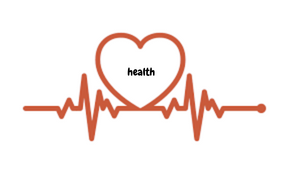Eating healthy and beneficial for a fit body and good health
Eating healthy food to maintain a healthy body and good health, as healthy eating helps and regulates the process of burning fat in the body instead of accumulating itbody and not accumulating it, as well as providing the body with sufficient calories to perform daily activities such as work, study, and others in the best way, and without feeling tired and tired during the day, so we tried Collect 10 good healthy food recipes that you can implement and include in your daily routine.
10 healthy and wholesome foods
Some people sometimes avoid certain types of foods on the grounds that they are unhealthy, and it is true that there are many foods that we can consider healthy and useful foods that we should not stop eating, but pay close attention to the amount of food itself and not just its type, as the amount of food has a significant impact on the health of The body in general and the intestines in particular, and among these useful items are the following:
1. White bread: Some people think that it is harmful, and the fact is that in terms of calories it is no different from brown bread, but browns of calories, but brown bread contains a greater proportion of minerals and fiber, and thus gives a feeling of fullness for a longer period.
2. Tomatoes: They contain antioxidants, amino acids, minerals and proteins that are necessary for the health of the body.
3. Butter: It contains omega 3, omega 6, and vitamin K2, which are needed for the health of the nervous system, heart, and arteries.
4. Eggs: They contain a high percentage of antioxidants, and a high percentage of protein, which helps to increase the feeling of satiety for a long time, so it is recommended to eat boiled eggs on a daily basis.
5. Apple cider vinegar and grape vinegar: It is one of the foods that help you feel full for a long time, so it can be placed on salads or on starches, to maintain blood sugar levels, as it helps in controlling sugar levels in the body.
6. Corn: or what is called popcorn, as it contains a high percentage of fiber, antioxidants, amino acids, and vitamin B, and to obtain its benefits without harm, it can be prepared without fats such as oil and butter.
7. Pistachio: one of the types of nuts rich in vitamin B, and free from harmful cholesterol, so it benefits the health of the heart and blood vessels.
8. Mayonnaise: Made from olive oil and eggs, it is rich in omega-3 and helps the body absorb the benefits and vitamins in the added vegetables, so it is recommended to put it in salads to get the most benefit.
9. Avocado: one of the foods rich in antioxidants, lutein, vitamin E, B, and a lot of fiber, all of which are important vitamins and minerals that help the body fight prostate cancer, aging diseases, and strengthen eyesight.
10. Pasta of all kinds: Some consider it the first enemy that can not be included in the list of any healthy food, but it is one of the necessary types of carbohydrates, folic acid, and fiber, and it can be served alongside proteins, to feel full for a longer period, and it is preferable to eat it boiled with salt only without any fat and in regulated quantities.
Tips for eating healthy meals while dieting
Some tips that help in eating a healthy diet can be mentioned, including the following:
Increase the number of fruits and vegetable meals to about five meals divided throughout the day, and a meal can be replaced with a glass of fresh fruit juice free of sugar.
Tips for eating healthy meals while dieting
Increase the number of fruits and vegetable meals to about five meals divided throughout the day, and a meal can be replaced with a glass of fresh fruit juice free of sugar.
Eat fish at least twice a week, where you can switch between canned fish such as tuna filtered from oil, and some fresh oily fish rich in omega-3.
Eating starchy foods, that is, eating a type of starchy food with every main meal, while rationing the amount, as it is considered the lowest calories compared to fats.
Reducing food intake of saturated fats such as cheese, butter and the like, and replacing them with unsaturated fats such as olive oil, fish oil and others. as; olive oil, oily fish, etc.
Increase fluid intake in general and water in particular so that the body is not exposed to dehydration. A minimum of 2 liters of water should be consumed each day...
Paying attention to eating breakfast, and not neglecting it, to help the body control the amount of fat and get rid of the excess proportion of it first.
Maintaining exercise on a daily basis, in addition to adjusting the daily food menu to contain healthy food, as the food menu must contain all the elements necessary for the body.
Reducing salt in food, as excess salt in food causes an increase in blood pressure, bearing in mind that the proportion of salt added to food does not exceed 6 grams per day for adults.

